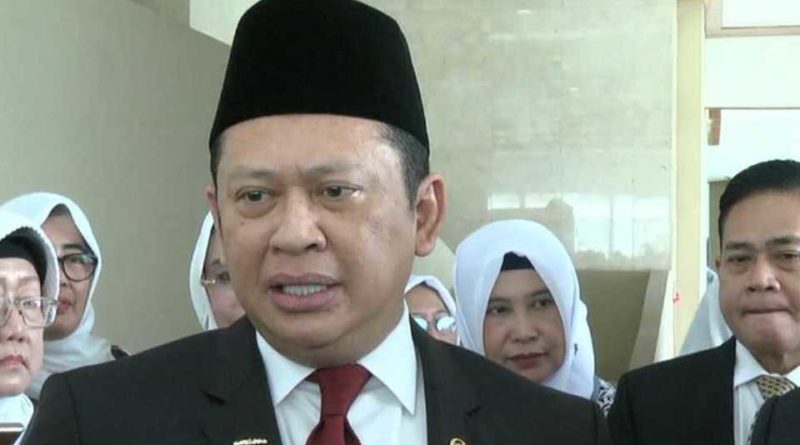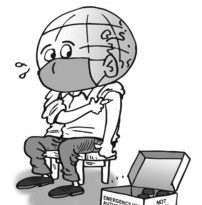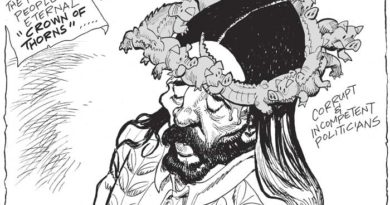JAKARTA- House Speaker Slams EU Plan to Phase Out Palm Oil
.
.
Jakarta. Indonesia is adopting a tougher stance against the European Union’s plan to phase out the use of palm oil in renewable transport fuel.
On Tuesday (26/03), it was the House of Representatives speaker Bambang Soesatyo’s turn to slam the EU plan, officially called the Renewable Energy Directive II (RED II).
Bambang’s criticism followed a threat from a Trade Ministry director who said on Monday the Indonesian government will encourage palm oil companies to file a lawsuit against the EU if the union does not back down on the policy.
Indonesia is the world’s biggest producer of palm oil. The country stands to lose a huge market if the EU goes through with its plan to phase out the commodity.
The RED II plan was submitted to the European Commission on March 13. If it is approved, the union will put palm oil in its list of unsustainable products, before phasing out its use in biofuels by 2030.
.
.
ADS by Cloud 9:
.
– SPACE RESERVE FOR YOUR ADVERTISEMENT –
.
.
Protest From Palm Oil-Producing Countries
“The RED II plan was based on flawed scientific analyses, which disregarded criticisms from the EU themselves and from independent institutions,” Bambang said.
The senior politician is a member of Golkar, one of the political parties supporting President Joko “Jokowi” Widodo’s re-election bid.
“It also disregarded concerns and [different] data put forward by palm oil-producing countries,” he said.
The EU has determined that oil palm is a “high risk crop,” after a study found that 45 percent of new oil palm plantations opened between 2008 and 2015 were located in high carbon stock area—far more than rival crops like soybean and rapeseed.
Indonesia, along with Malaysia, the world’s second largest palm oil producer, are of the opinion that a ban on palm oil will only result in more forests being cleared to plant oil palm-subtitute crops.
Critics of the palm oil industry have long argued that extensive land clearing for oil palm plantations has caused extreme deforestation, increased the world’s greenhouse gas emissions and destroyed biodiversity.
On the other hand, supporters of the industry say oil palm plantations take up the least amount of land compared to other crops that can be processed into vegetable oil, such as sunflower, rapeseed and soybean.
Palm oil producers like Indonesia are saying that the EU, with backing from environmentalists, are effectively exercising a trade war to discredit palm oil, which is also used extensively in the production of foods, cosmetics and medicines.
The EU is the second-largest market after India for Indonesian palm oil, which accounted for around 12 percent of the country’s total exports in 2017, government data show.
.
.
ADS by Cloud 9:
.
– SPACE RESERVE FOR YOUR ADVERTISEMENT –
.
.
Impact on Jobs
“Palm oil is a key commodity for Indonesia. The industry has created 19.5 million jobs, including 2.6 million smallholders who employ 4.3 million workers,” Bambang said.
Palm oil was the country’s largest foreign exchange contributor last year, raking in $21.4 billion for the government’s coffers.
It is categorized as a “high priority commodity” by the government that sees it as a vital component in its effort to meet the United Nation’s Sustainable Development Goals (SDGs), according to Bambang.
.
.
ADS by Cloud 9:
.
– SPACE RESERVE FOR YOUR ADVERTISEMENT –
.
.
All Out Fight
Indonesia is preparing for an all out fight with the EU over palm oil, with government officials signaling that the country will raise a challenge against the union’s anti-palm oil policy with the World Trade Organization.
The Trade Ministry has also hinted that Indonesia may re-examine bilateral relations with EU member states that have been most supportive of the RED II policy.
“The House of Representatives will support the government’s move [against the EU], including filing a challenge with the WTO,” Bambang said.
Indonesian Palm Oil Association (Gapki), which harbors the country’s biggest palm oil producers, is applauding the government’s effort to protect their interests in the European market.
The association’s deputy chairman Togar Sitanggang was quoted by Reuters as saying that its members will “take the government’s advice into consideration and continue to discuss further steps to take.”
Gapki is also looking into possible legal action against retailers campaigning for “palm oil-free” labeling, according to Togar.
The EU does not yet have a regulation on palm oil labelling, but many companies have slapped palm oil-free stickers on their products due to customer demand.
Whether or not this bickering over palm oil will turn into an all-out war will depend on the outcome of discussions between the EU and the European Parliament, who now have two months to accept or veto the new EU rule.
.
.
ADS by Cloud 9:
.
– SPACE RESERVE FOR YOUR ADVERTISEMENT –
.
.![]() All photographs, news, editorials, opinions, information, data, others have been taken from the Internet ..aseanews.net | [email protected] |
All photographs, news, editorials, opinions, information, data, others have been taken from the Internet ..aseanews.net | [email protected] |
For comments-Email to : Pahulu Gan|
. [email protected]









